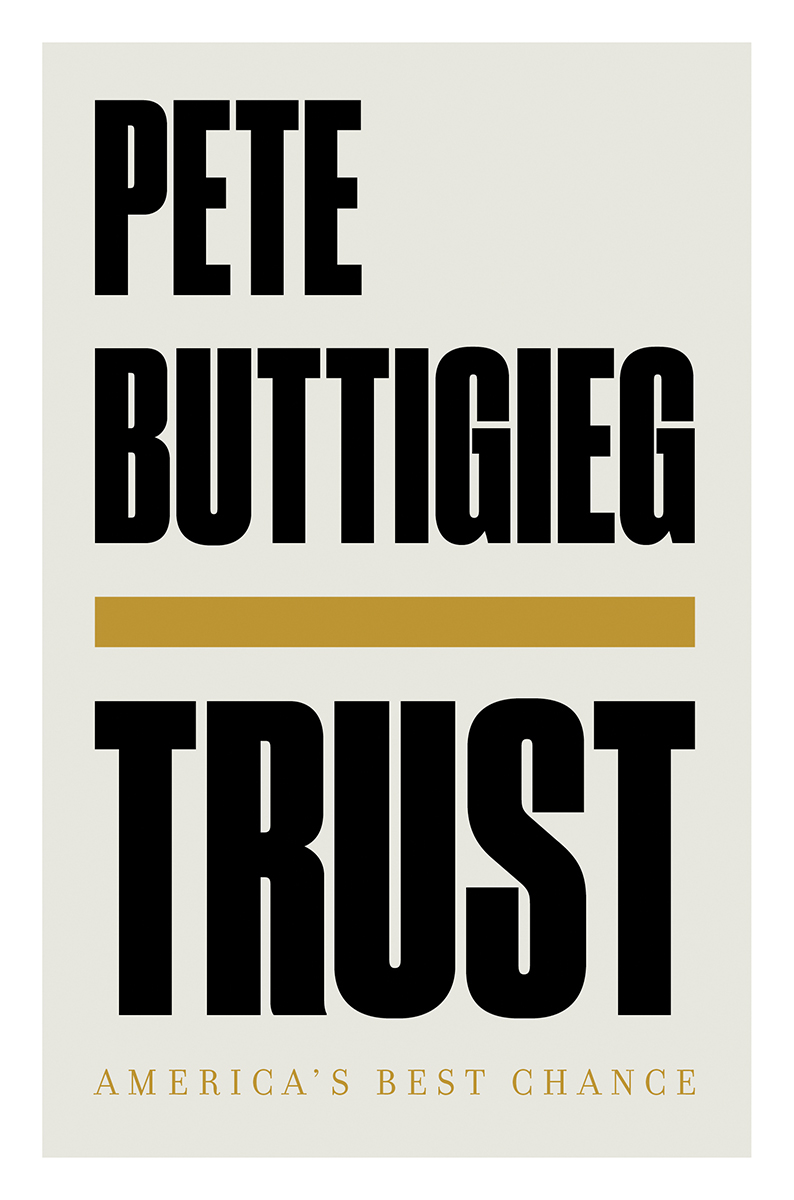Pete Buttigieg

Trust: America's Best Chance
Pete Buttigieg
Trust is the essential foundation of America’s democracy, asserts Pete Buttigieg, former presidential candidate and best-selling author of Shortest Way Home. In a century shaped by terrorism, financial collapse, Trumpist populism, global pandemic, and systemic racism, trust—in our government, corporations, experts, and, most tragically, in one another—has precipitously eroded and, for so many, never existed in the first place. Recognizing that we are now experiencing disastrous consequences, the former South Bend mayor offers a direct reckoning with the corruption of social responsibility, interweaving history, political philosophy, and affecting passages of memoir, offering a new outlook for how we can confront the next decade’s challenges by building accountability. In this urgent work, Buttigieg confirms his status as a visionary political thinker.

Shortest Way Home: One Mayor's Challenge and a Model for America's Future
Pete Buttigieg
Once described by the Washington Post as “the most interesting mayor you’ve never heard of,” Pete Buttigieg, the thirty-seven-year-old mayor of South Bend, Indiana, has now emerged as one of the nation’s most visionary politicians. With soaring prose that celebrates a resurgent American Midwest, Shortest Way Home narrates the heroic transformation of a “dying city” (Newsweek) into nothing less than a shining model of urban reinvention.
Interweaving two narratives—that of a young man coming of age and a town regaining its economic vitality—Buttigieg recounts growing up in a Rust Belt city, amid decayed factory buildings and the steady soundtrack of rumbling freight trains passing through on their long journey to Chicagoland. Inspired by John F. Kennedy’s legacy, Buttigieg first left northern Indiana for red-bricked Harvard and then studied at Oxford as a Rhodes Scholar, before joining McKinsey, where he trained as a consultant—becoming, of all things, an expert in grocery pricing. Then, Buttigieg defied the expectations that came with his pedigree, choosing to return home to Indiana and responding to the ultimate challenge of how to revive a once-great industrial city and help steer its future in the twenty-first century.
Elected at twenty-nine as the nation’s youngest mayor, Pete Buttigieg immediately recognized that “great cities, and even great nations, are built through attention to the everyday.” As Shortest Way Home recalls, the challenges were daunting—whether confronting gun violence, renaming a street in honor of Martin Luther King Jr., or attracting tech companies to a city that had appealed more to junk bond scavengers than serious investors. None of this is underscored more than Buttigieg’s audacious campaign to reclaim 1,000 houses, many of them abandoned, in 1,000 days and then, even as a sitting mayor, deploying to serve in Afghanistan as a Navy officer. Yet the most personal challenge still awaited Buttigieg, who came out in a South Bend Tribune editorial, just before being reelected with 78 percent of the vote, and then finding Chasten Glezman, a middle-school teacher, who would become his partner for life.
While Washington reels with scandal, Shortest Way Home, with its graceful, often humorous, language, challenges our perception of the typical American politician. In chronicling two once-unthinkable stories—that of an Afghanistan veteran who came out and found love and acceptance, all while in office, and that of a revitalized Rust Belt city no longer regarded as “flyover country”—Buttigieg provides a new vision for America’s shortest way home.